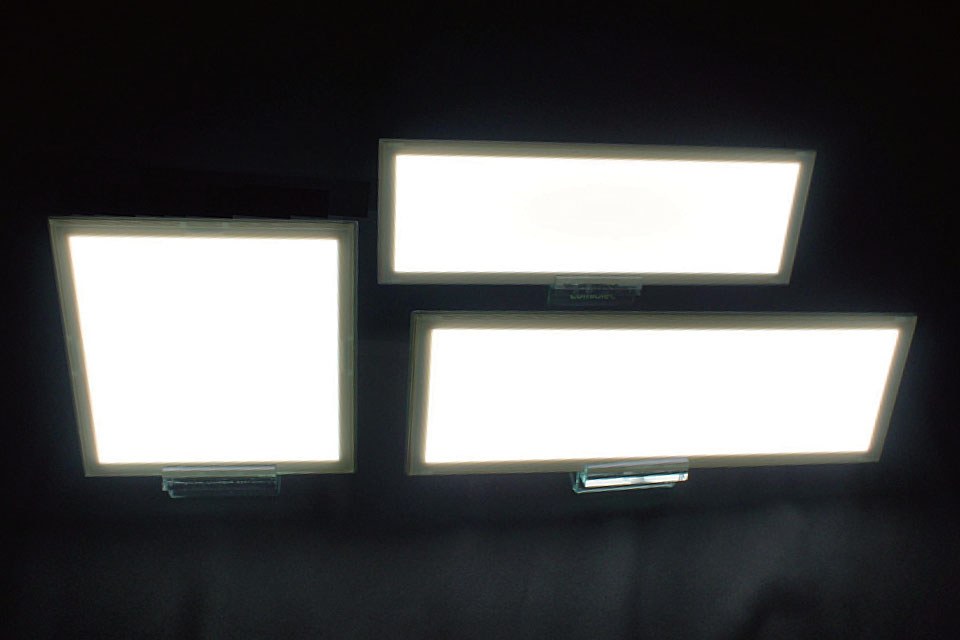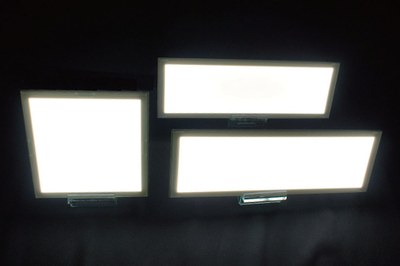Lumiotec to Ship Commercial Production OLED Lighting Panels with World’ s Highest Color Rendering Index of Ra93
Lumiotec Inc., a company specializing in organic light-emitting diode (OLED) lighting panels, will begin shipping commercially produced OLED lighting panels which achieve the world's highest color rendering index of Ra93*1 this coming August. The OLED panels are capable of high-level reproducibility of red and human skin colors, which has heretofore been an industry limitation. With a light output approximating natural light, the panel is capable of reproducing the original color of various materials, from fresh food and clothing, to human skin tones. The panels have won high acclaim from users, even at the sample production stage, thus, Lumiotec sees demand for applications in various fields and looks to expand its market.
The OLED panels being launched to market are the P06 Series (natural white) which have achieved high color rendering capability. The panels are available in five sizes, as were the previous commercial production panels (P3, P4 and P5 Series). The shipment prices of the P06 Series, with a luminescent efficiency of 28 lm/W (lumen/watt); an average color rendering index of Ra93 and, at the same time, red and human skin tones with a CRI over 90, significantly enhanced from previous models, will remain the same: prevailing market prices are about 13,000 yen to 40,000 yen, excluding sales tax.
Lumiotec was the first in the world to begin marketing commercial OLED lighting panels (natural white and lamp color) in January 2011 and has continued to conduct marketing activities with the panels. Responding to requests from customers for high-efficiency, and high-rendering capability panels, Lumiotec began to sell the high-efficiency series (40lm/W, lamp color) in April of this year. The company now markets the P06 Series, a commercial production OLED panel, which achieves the world's highest color rendering capability. The color rendering index is a crucial factor for lighting equipment, along with efficiency and durability. In general, natural light is used as a criterion with the value of 100. Index numbers incrementally closer to 100 indicate higher color reproducibility.
The P06 Series has not only achieved a high color rendering index of Ra93 but has also realised high-level reproducibility for all colors, including red and human skin tones (Asian and European) color, which have been considered a limitation of this lighting technology.
OLED lighting panels offer qualities which neither conventional light sources, such as incandescent bulbs and fluorescent tubes, nor light-emitting diodes (LED) can provide:
- lightweight and extremely thin
- surface light emission, enabling uniform, soft non-glare light
- no ultraviolet or infrared rays, preventing damage to objects being lit
- no harmful substances such as mercury
- low energy consumption, which reduces CO2 emissions
With their high color rendering capability, Lumiotec's OLED panels prevent differences in color impression of clothes in the fitting room versus outside lighting conditions. In exhibiting objects at museums, including art museums, as well as the illuminating of people, the original colors will be vividly reproduced.
Gaining increased momentum by the launch of high-color rendering index OLED panels, Lumiotec will further accelerate its various activities toward the establishment of an operating structure for full-fledged mass production and marketing.
About Limiotec:
Lumiotec was jointly established by Mitsubishi Heavy Industries, Ltd., ROHM Co., Ltd., Toppan Printing Co., Ltd. and Mitsui & Co. in May 2008 as the world's first company exclusively dedicated to OLED lighting panels. Following important developments of a new device structure that enabled simultaneous achievement of high luminance and long life – two features that in the past were considered performance trade-offs – Lumiotec established a mass-production line at its facility in Yonezawa City, Yamagata Prefecture. Lumiotec was the first in the world to ship mass-produced OLED panels for lighting applications in January 2011.


